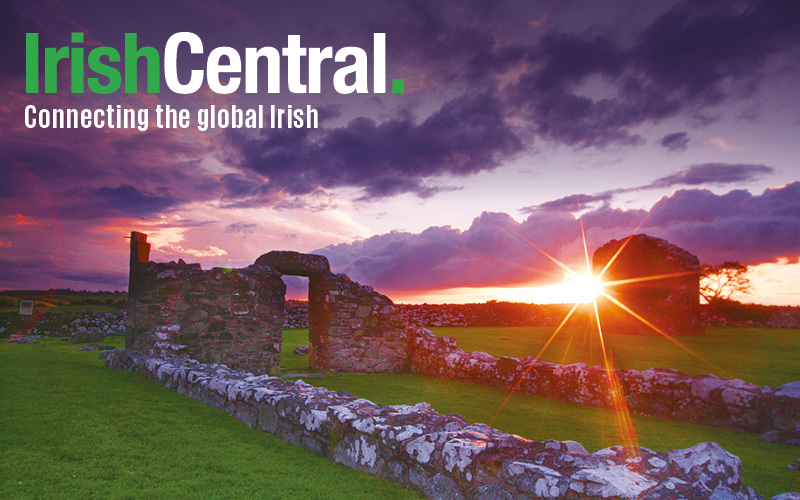Written by Danielle Owen, Director of Wellness and Education Services
According to the Department of Health and Human Services, the percentage of heroin-related admissions to Massachusetts emergency rooms is as much as 40%, higher than alcohol. It is clear that prescription pain medication and heroin addictions are contributing to a community crisis in Massachusetts, and the Irish community is not immune. Injuries, poisonings and deaths by overdoses and suicide are key aspects of this worrying trend. So, what is preventing those struggling with these addictions to get help?
There are two myths about addiction that make it difficult for an individual or their families and loved ones to find help and recovery: “a person can get off drugs alone” and “most addicts can become permanently drug-free.” The US Center for Disease Control (CDC) says, "These ideas stem in part from notions that continued drug use is voluntary and that a person’s inability to overcome addiction stems solely from character flaws or a lack of willpower".
Research of the CDC’s findings clearly indicates that:
Addiction is a brain disease. Long-term drug use causes profound changes in our brain structure and function that result in uncontrollable compulsive drug craving, seeking, and use. (Ask any smoker who has tried to quit cigarettes!)
Addiction has profound effects on all areas of a person's life including their physical, emotional, and mental health; as well as impacting their family, colleagues, neighbors, and community.
Addiction is a treatable, chronic disease. A five to seven day detoxification safely removes the drug from a person's system but the cravings continue because of the changes in the brain generated by drug use. It's not a “cure” but if a person gets support to address all the different areas of their life impacted by the drug use, than recovery is possible.
As long as the person believes they can do it alone, they will continue to struggle; all the while falling further and further into depression, hopelessness and despair.
It is this despair that can then leave people vulnerable to suicide. It is not just a matter of "willpower.” Inpatient/outpatient counseling and self help groups can be of great help.
The CDC says, "Research has shown that comprehensive and sustained substance abuse treatment can help individuals reduce or stop using illegal or dangerous drugs, thereby greatly improving their functioning in the family, at work, and in society; and is as effective as the treatments for other chronic conditions, including diabetes and asthma."
Too often, families and friends feel that there is no hope, because they are very hurt by their loved one’s behavior while in addiction; but, recovery is possible.
We encourage you to call Danielle today at (617) 542-7654 ext. 14 to find out what options are available to you and your loved one, no matter what your circumstances are.
Families have many support options available to them, including counseling and self help groups such as "Learn to Cope" and Nar-Anon.
The IIIC has a NARCAN training on November 21, where loved ones learn how to reverse an opiate overdose and save lives.
Call Ciara at ext. 32 for more information about this training or the IIIC’s suicide prevention campaign, including our upcoming QPR suicide prevention workshops.
According to the Department of Health and Human Services, the percentage of heroin-related admissions to Massachusetts emergency rooms is as much as 40%, higher than alcohol. It is clear that prescription pain medication and heroin addictions are contributing to a community crisis in Massachusetts, and the Irish community is not immune. Injuries, poisonings and deaths by overdoses and suicide are key aspects of this worrying trend. So, what is preventing those struggling with these addictions to get help?
There are two myths about addiction that make it difficult for an individual or their families and loved ones to find help and recovery: “a person can get off drugs alone” and “most addicts can become permanently drug-free.” The US Center for Disease Control (CDC) says, "These ideas stem in part from notions that continued drug use is voluntary and that a person’s inability to overcome addiction stems solely from character flaws or a lack of willpower".
Research of the CDC’s findings clearly indicates that:
Addiction is a brain disease. Long-term drug use causes profound changes in our brain structure and function that result in uncontrollable compulsive drug craving, seeking, and use. (Ask any smoker who has tried to quit cigarettes!)
Addiction has profound effects on all areas of a person's life including their physical, emotional, and mental health; as well as impacting their family, colleagues, neighbors, and community.
Addiction is a treatable, chronic disease. A five to seven day detoxification safely removes the drug from a person's system but the cravings continue because of the changes in the brain generated by drug use. It's not a “cure” but if a person gets support to address all the different areas of their life impacted by the drug use, than recovery is possible.
As long as the person believes they can do it alone, they will continue to struggle; all the while falling further and further into depression, hopelessness and despair.
It is this despair that can then leave people vulnerable to suicide. It is not just a matter of "willpower.” Inpatient/outpatient counseling and self help groups can be of great help.
The CDC says, "Research has shown that comprehensive and sustained substance abuse treatment can help individuals reduce or stop using illegal or dangerous drugs, thereby greatly improving their functioning in the family, at work, and in society; and is as effective as the treatments for other chronic conditions, including diabetes and asthma."
Too often, families and friends feel that there is no hope, because they are very hurt by their loved one’s behavior while in addiction; but, recovery is possible.
We encourage you to call Danielle today at (617) 542-7654 ext. 14 to find out what options are available to you and your loved one, no matter what your circumstances are.
Families have many support options available to them, including counseling and self help groups such as "Learn to Cope" and Nar-Anon.
The IIIC has a NARCAN training on November 21, where loved ones learn how to reverse an opiate overdose and save lives.
Call Ciara at ext. 32 for more information about this training or the IIIC’s suicide prevention campaign, including our upcoming QPR suicide prevention workshops.




Comments